

January 15: 5 POWER Lessons From 5 Leaders Who Made History On This DAY!
1. “Take risks. If you win, you will be happy. If you lose, you will be wise.”
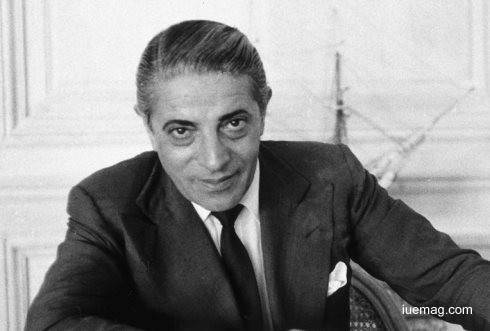
Aristotle Onassis grew up from ‘nobody’ to a global business magnate who ruled the world as one of the world’s richest men.
Born in a financially well-off household, he experienced a privileged upbringing but the good times did not last long as the family lost its business and household, after the Turkey’s invasion of Greece. Onassis started afresh as an employee in the telephone exchange but with ambitions and dreams that surpassed the business tycoons of the world. His fortunes soon turned favourable and he began a life of good living. His ability to reinvent himself as an important businessman during the day, yet continuing to work the phone lines in coveralls at night, was an early indication of his shrewd social and business skills. He then started a business empire, manufacturing cigarettes which not just made him a millionaire by the age of 25, but a business tycoon.
Building on his wealth, he realized that the shipping magnates who hauled the tobacco made more than the cigarette manufacturers. This realization came to him at the height of the Great Depression and then, he turned to manufacturing his own brand of cigarettes. The business thrived and so did his reputation and financial worth. Shortly, he realized that shipping merchants were making more money than cigarette manufactures by transporting tobacco. Ambitious as he was, he started buying ships at a time when people were moving out of the shipping business. It took him a few days to expand his fleet. No sooner he became a Geek Argentine shipping magnate. Throughout his life, he was known for his huge expanse of business, whopping monetary account.
Born in a financially well-off household, he experienced a privileged upbringing but the good times did not last long as the family lost its business and household, after the Turkey’s invasion of Greece. Onassis started afresh as an employee in the telephone exchange but with ambitions and dreams that surpassed the business tycoons of the world. His fortunes soon turned favourable and he began a life of good living. His ability to reinvent himself as an important businessman during the day, yet continuing to work the phone lines in coveralls at night, was an early indication of his shrewd social and business skills. He then started a business empire, manufacturing cigarettes which not just made him a millionaire by the age of 25, but a business tycoon.
Building on his wealth, he realized that the shipping magnates who hauled the tobacco made more than the cigarette manufacturers. This realization came to him at the height of the Great Depression and then, he turned to manufacturing his own brand of cigarettes. The business thrived and so did his reputation and financial worth. Shortly, he realized that shipping merchants were making more money than cigarette manufactures by transporting tobacco. Ambitious as he was, he started buying ships at a time when people were moving out of the shipping business. It took him a few days to expand his fleet. No sooner he became a Geek Argentine shipping magnate. Throughout his life, he was known for his huge expanse of business, whopping monetary account.
2. “A rejection is nothing more than a necessary step in the pursuit of success.” –Bo Bennett
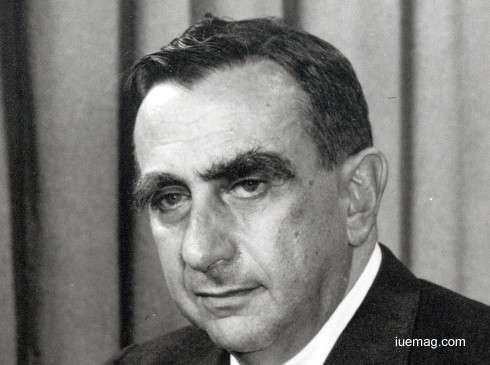
One of the most renowned nuclear and molecular physicists, Edward Teller left an unparalleled legacy in the field of science. Hailed as the ‘the father of the hydrogen bomb’, Teller was one of the most imaginative and creative physicists. He holds a significant position in the development of nuclear energy and has made a major contribution in the fields of nuclear physics, molecular physics and spectroscopy. This weapons research pioneer, whose work on nuclear science was of crucial importance, played a key role in the American War effort.
After the Soviet Union first detonated an atomic bomb, the then President Truman proposed the development program for the hydrogen bomb, while Teller was working as a Professor at the University of Chicago. After his research on hydrogen bomb, along with mathematician Stanislaw Ulam, he published the report titled ‘Hydrodynamic Lenses and Radiation Mirrors’, which was the first workable design of the hydrogen bomb. He was still denied the position of the head of the hydrogen project. On November 1, 1952 the ‘Ivy Mike’, the thermonuclear weapon created by him and Stanislaw Ulam was successfully tested at the test site, Enewetak. After the testing, he became known in the press as ‘the father of the hydrogen bomb’. He invented the ‘Teller-Ulam design’, which was a first workable design of a hydrogen bomb.
He also helped to create nuclear reactor safety standards. He investigated and proposed non-military uses of nuclear explosives and also advised Israel on nuclear matters. He made numerous contributions to nuclear and molecular physics, spectroscopy and surface physics. His extensions of Enrico Fermi’s theory of beta decay, in the form of Gamow–Teller transitions. In 1991, he was awarded the Ig Nobel Prize Peace for his ‘lifelong efforts to change the meaning of peace as we know it’.
After the Soviet Union first detonated an atomic bomb, the then President Truman proposed the development program for the hydrogen bomb, while Teller was working as a Professor at the University of Chicago. After his research on hydrogen bomb, along with mathematician Stanislaw Ulam, he published the report titled ‘Hydrodynamic Lenses and Radiation Mirrors’, which was the first workable design of the hydrogen bomb. He was still denied the position of the head of the hydrogen project. On November 1, 1952 the ‘Ivy Mike’, the thermonuclear weapon created by him and Stanislaw Ulam was successfully tested at the test site, Enewetak. After the testing, he became known in the press as ‘the father of the hydrogen bomb’. He invented the ‘Teller-Ulam design’, which was a first workable design of a hydrogen bomb.
He also helped to create nuclear reactor safety standards. He investigated and proposed non-military uses of nuclear explosives and also advised Israel on nuclear matters. He made numerous contributions to nuclear and molecular physics, spectroscopy and surface physics. His extensions of Enrico Fermi’s theory of beta decay, in the form of Gamow–Teller transitions. In 1991, he was awarded the Ig Nobel Prize Peace for his ‘lifelong efforts to change the meaning of peace as we know it’.
3. “Courage is the foundation of integrity. With courage, you will dare to take risks, have the strength to be compassionate and the wisdom to be humble.”
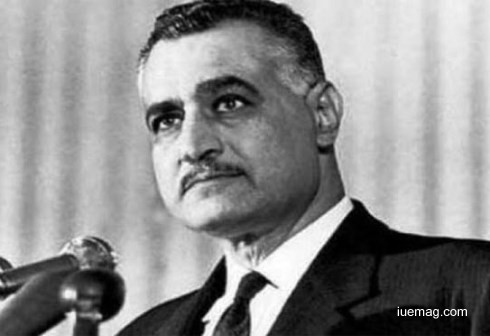
Gamal Abdel Nasser who served as the second President of Egypt, was one of the foremost rulers of the country. All through his life, he retained important position in the military and in the political scene of Egypt. He was solely responsible for the overthrowing of the monarchy and the establishment of the new government. He is acclaimed for being the reason for a change within Egypt and the Arab world including anti-imperialist efforts, assertion of social justice, Arab unity, modernization policy and nationalization of the Suez Canal.
He was the main proponent of a pan-Arabic socialism. He was born in the poverty stricken Alexandrian suburb of Bacos. Nasser entered the military college which had opened its ranks to lower-class applicants. He graduated and entered the Egyptian army on the eve of World War II. He objected to the continuing British influence in Egypt. Nasser as an army officer, fought in the first Arab-Israeli war. This experience made him a fervent believer in the Arab desire to destroy Israel. Nasser became the second president of the republic Egypt and proceeded to launch a social revolution aiming to create a modern, state that could bring Egyptians out of poverty and he saw socialism as the way to accomplish this. Nasser was a gifted speaker and was able to inspire the Egyptian people with a heady brand of nationalism and socialism. He was not, however, a well-educated man. A key aspect of Nasser's development plans became a massive new dam on the Nile--the Aswan High Dam.
Nasser achieved phenomenal popularity not only in Egypt, but throughout the Arab world, due to his emotional speeches. He preached a single, triumphant Arab nation. He gradually rose to great prominence throughout the Arab world. Nasser was the first leader in the country's long history who set the goal of raising the Egyptian peasantry from poverty.
He was the main proponent of a pan-Arabic socialism. He was born in the poverty stricken Alexandrian suburb of Bacos. Nasser entered the military college which had opened its ranks to lower-class applicants. He graduated and entered the Egyptian army on the eve of World War II. He objected to the continuing British influence in Egypt. Nasser as an army officer, fought in the first Arab-Israeli war. This experience made him a fervent believer in the Arab desire to destroy Israel. Nasser became the second president of the republic Egypt and proceeded to launch a social revolution aiming to create a modern, state that could bring Egyptians out of poverty and he saw socialism as the way to accomplish this. Nasser was a gifted speaker and was able to inspire the Egyptian people with a heady brand of nationalism and socialism. He was not, however, a well-educated man. A key aspect of Nasser's development plans became a massive new dam on the Nile--the Aswan High Dam.
Nasser achieved phenomenal popularity not only in Egypt, but throughout the Arab world, due to his emotional speeches. He preached a single, triumphant Arab nation. He gradually rose to great prominence throughout the Arab world. Nasser was the first leader in the country's long history who set the goal of raising the Egyptian peasantry from poverty.
4. “Leadership is action, not position.” –Donald H McGannon
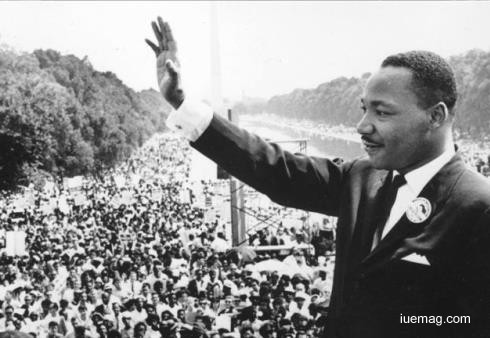
Martin Luther King Jr. was a leader of the African-American Civil Rights Movement. While fighting against injustice meted to the African-Americans, he carefully shunned violence. His ideas were based on Christian doctrines but for operational techniques he looked towards Mahatma Gandhi’s non-violent movement. His first major campaign was Montgomery Bus Boycott. It not only led to the abolition of racial segregation on Montgomery public transport system, but also turned King Jr. into a national figure and the fiercest spokesperson of civil rights movement.
A Baptist minister and civil-rights activist, he had a seismic impact on race relations in the United States, beginning in the mid-1950s. Among his many efforts, King headed the Southern Christian Leadership Conference. Through his activism and inspirational speeches he played a pivotal role in ending the legal segregation of African-American citizens in the United States. In 1963, he helped organize the famous "March on Washington". Over 250,000 people attended this march in an effort to show the importance of civil rights legislation. Some of the issues the march hoped to accomplish included an end to segregation in public schools, protection from police abuse, and to get laws passed that would prevent discrimination in employment. It was at this march where Martin gave his “I Have a Dream” speech. This speech has become one of the most acclaimed speeches in history. The March on Washington was a great success. The Civil Rights Act was passed a year later in 1964. King received the Nobel Peace Prize in 1964, among several other honours. He continues to be remembered as one of the most influential and inspirational African-American leaders in history.
Subsequently, he led many other nonviolent campaigns and presented many inspiring speeches. Later, he expanded the ambit of his movement and started fighting for equal employment opportunity. He dreamt that one day every human being would be judged based on his/her ability, not by the colour of his/her skin.
A Baptist minister and civil-rights activist, he had a seismic impact on race relations in the United States, beginning in the mid-1950s. Among his many efforts, King headed the Southern Christian Leadership Conference. Through his activism and inspirational speeches he played a pivotal role in ending the legal segregation of African-American citizens in the United States. In 1963, he helped organize the famous "March on Washington". Over 250,000 people attended this march in an effort to show the importance of civil rights legislation. Some of the issues the march hoped to accomplish included an end to segregation in public schools, protection from police abuse, and to get laws passed that would prevent discrimination in employment. It was at this march where Martin gave his “I Have a Dream” speech. This speech has become one of the most acclaimed speeches in history. The March on Washington was a great success. The Civil Rights Act was passed a year later in 1964. King received the Nobel Peace Prize in 1964, among several other honours. He continues to be remembered as one of the most influential and inspirational African-American leaders in history.
Subsequently, he led many other nonviolent campaigns and presented many inspiring speeches. Later, he expanded the ambit of his movement and started fighting for equal employment opportunity. He dreamt that one day every human being would be judged based on his/her ability, not by the colour of his/her skin.
5. “Forget all the reasons why it won’t work and believe the one reason it will.”
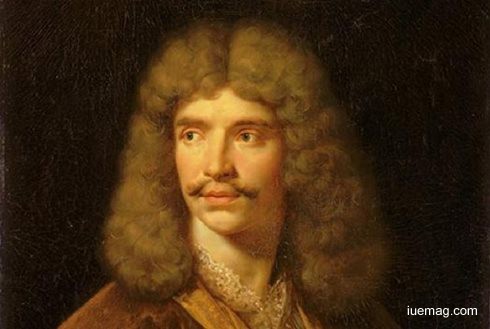
Molière was a renowned 17th century French dramatist, actor, director and playwright. He is best-known for his comedy works in Western literature some of which are ‘Le Bourgeois Gentilhomme’, ‘Le Misanthrope’, ‘L’Ecole des Femmes’ and ‘Tartuffe ouL’Imposteur’. He is also considered one of France’s greatest playwrights, who perfectly captured the double standards of 17th century French society, fusing both humour and intellect in his works.
Born into a fairly aristocratic family, he was educated in France’s finest schools, receiving some of the finest training in theatre and fine arts. Throughout his career, he obtained the patronage of nobles including Philippe I, Duke of Orleans. He was admired by court nobles and Parisians alike, making him one of the most-loved figures of theatre. Although some of his works were directly attacked by the Church, he continued to win the hearts of audiences. Today, his works are immensely popular around the world; both in universities and on stage, where it is emulated by modern-day playwrights. Towards the end of his career, persistent illnesses began to take a toll on his health, which reduced his theatrical capacities. He passed away collapsing on the stage after one of his best performances.
He was one of the greatest comic geniuses the world has seen, and undoubtedly the master of ‘social comedy.’ Almost singlehandedly, he prompted international acclaim for French social comedy, and established the form as one of the more enduring types of comedy. In his plays, he analyzed many aspects of his contemporary society and penetrated into the essential characteristics of various types of people. His critical insights into the nature of types like the hypocrite, the misanthrope, and the miser remain almost as urbane today as they were when written. (Sources: wikipedia.org, thefamouspeople.com, histclo.com)
Born into a fairly aristocratic family, he was educated in France’s finest schools, receiving some of the finest training in theatre and fine arts. Throughout his career, he obtained the patronage of nobles including Philippe I, Duke of Orleans. He was admired by court nobles and Parisians alike, making him one of the most-loved figures of theatre. Although some of his works were directly attacked by the Church, he continued to win the hearts of audiences. Today, his works are immensely popular around the world; both in universities and on stage, where it is emulated by modern-day playwrights. Towards the end of his career, persistent illnesses began to take a toll on his health, which reduced his theatrical capacities. He passed away collapsing on the stage after one of his best performances.
He was one of the greatest comic geniuses the world has seen, and undoubtedly the master of ‘social comedy.’ Almost singlehandedly, he prompted international acclaim for French social comedy, and established the form as one of the more enduring types of comedy. In his plays, he analyzed many aspects of his contemporary society and penetrated into the essential characteristics of various types of people. His critical insights into the nature of types like the hypocrite, the misanthrope, and the miser remain almost as urbane today as they were when written. (Sources: wikipedia.org, thefamouspeople.com, histclo.com)
Copyrights © 2025 Inspiration Unlimited - iU - Online Global Positivity Media
Any facts, figures or references stated here are made by the author & don't reflect the endorsement of iU at all times unless otherwise drafted by official staff at iU. A part [small/large] could be AI generated content at times and it's inevitable today. If you have a feedback particularly with regards to that, feel free to let us know. This article was first published here on 15th January 2017.
Overthinking? Uninspired? Brain Fogged?
Let's Reset That! Try iU's Positivity Chat NOW!

All chats are end-to-end encrypted by WhatsApp and won't be shared anywhere [won't be stored either].


